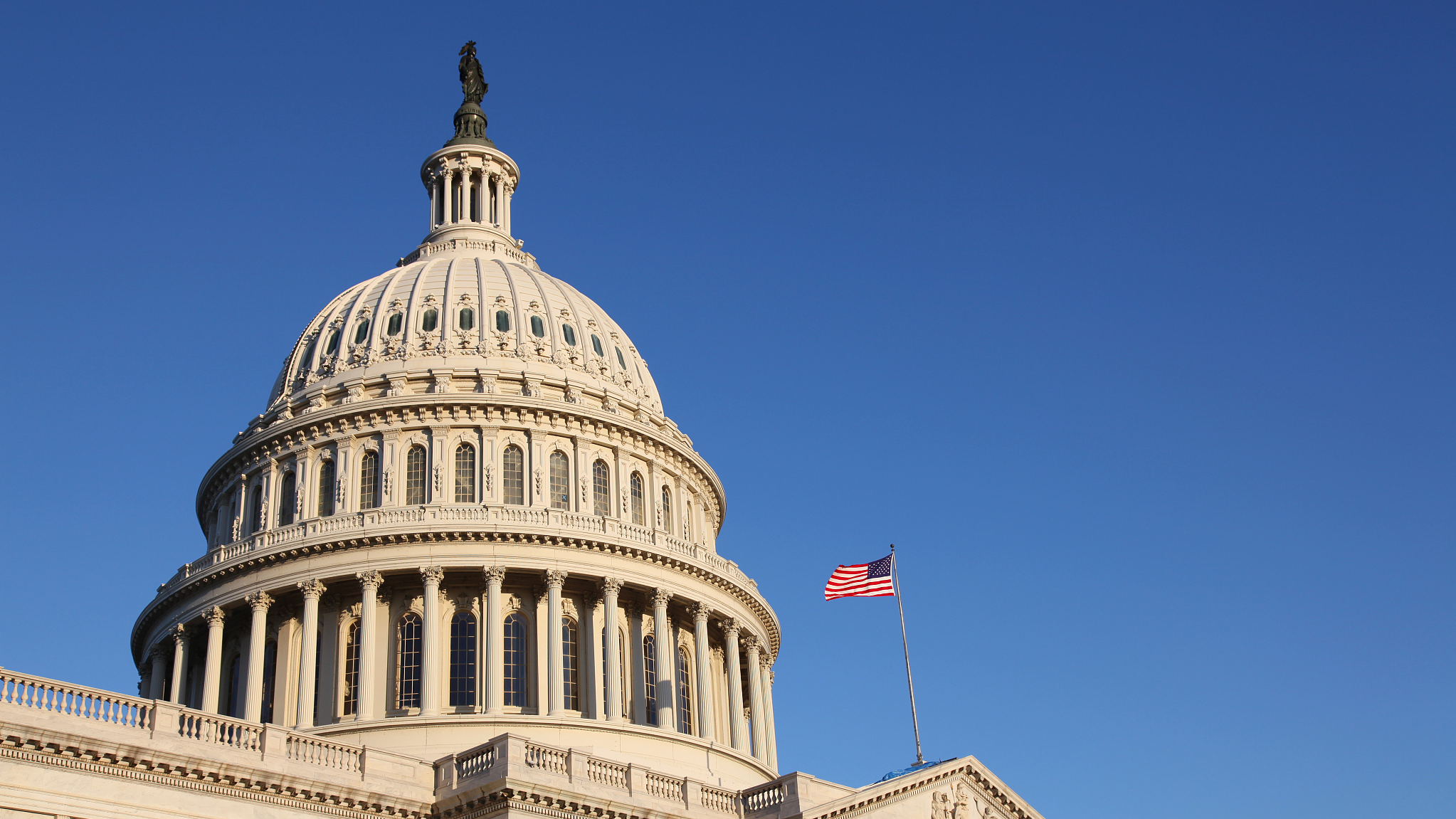
Editor's note: Bradley Blankenship is a Prague-based American journalist, political analyst and freelance reporter. The article reflects the author's opinions and not necessarily the views of CGTN.
Washington's policymakers and think tankies alike have bought into the conclusion that China is seeking to displace the United States as the leader of the international world order – and they're crafting policy working backwards from that conclusion. It’s born out of paranoia, plain and simple, and it's leading the U.S. down a foolhardy path.
Last week, U.S. President Joe Biden announced that his administration is requesting a $753-billion defense budget for fiscal year 2022, with $715 billion of that going to the Pentagon. While this massive budget is actually a modest boost compared to his predecessors and essentially mirrors inflation, it is highly likely that Congress will bolster this already large budget even more. After all, Congress has the so-called power of the purse.
Senate Minority Leader Mitch McConnell and other top GOP officials in the Senate blasted the proposal, saying that it does not do enough to combat growing threats, which he said includes Russia and China. The details of the proposal, however, are perhaps more important than its total price tag since Biden's fact sheet explicitly says that "the need to counter the threat from China" is the Pentagon's "top challenge" and earmarks additional funds for the U.S. Pacific Command for new combat planes, ships and submarines.
That is to say that the debate over the military budget – the grand total – is really just theatrics while both Democrats and Republicans have leaned in to the premise that there is an uptick of external threats that require an increasingly belligerent American response.
Just look at another bill recently proposed by the U.S. Senate Foreign Relations Committee called the "Strategic Competition Act of 2021." The bill includes hundreds of millions of dollars to fund and train media that reports on the "negative impact" of China's Belt and Road Initiative (BRI). It would actually create an annual $300-million "Countering Chinese Influence Fund" for fiscal years 2022-2026 to combat Chinese "disinformation."
According to the U.S. State Department's Global Engagement Center (GEC), which the bill allows to define this word, for example, the fact that the U.S. is hoarding COVID-19 vaccines and treatments and China is exporting these materials as a global public good is actually just "disinformation."

Vice President of Ecuador María Alejandra Muñoz (3rd R) applauds during the arrival of doses of the Sinovac COVID-19 vaccine at Mariscal Sucre International Airport, Quito, Ecuador, April 10, 2021,. /Getty
Vice President of Ecuador María Alejandra Muñoz (3rd R) applauds during the arrival of doses of the Sinovac COVID-19 vaccine at Mariscal Sucre International Airport, Quito, Ecuador, April 10, 2021,. /Getty
On the topic of competition, the bill does not introduce any infrastructure projects in Africa to compete with China's development projects there. However, in Latin America, the bill does outline an $80 billion capital increase for the Inter-American Development Bank, which funds these sorts of projects, but it would come with conditions that prevent countries from borrowing from China.
Just this one bill is a textbook example of Washington's dilapidated ideology at work. Its title implies that Washington wants to engage in competition with Beijing, but the bill doesn't actually propose anything that would legitimately advance competition; its details make clear that it's more about combating alleged disinformation, but it seeks to accomplish this by actively pushing disinformation. It simply makes no sense unless you’ve drunk Washington’s Kool-Aid.
It goes to show that these so-called experts have developed a false consciousness about the world that, to quote Judah Grunstein's latest column at World Politics Review, "reduces the world's regions to playing fields and its countries to prizes, rather than engaging with them as actors with their own interests and needs."
Indeed, Washington is more concerned with combatting whatever "win" China might score by helping Global South countries develop through infrastructure projects, win-win cooperation and, in the present context, medical supplies than actually being the one to address these issues. To be clear, it's not like any country – not even China – would be against Washington stepping up to the plate to do these things, it's just that the country's policymakers are fundamentally uninterested in this.
Just like its problems at home with racism, xenophobia, poverty and other issues, the country's political elite would rather just ignore the Global South's issues and gaslight them into accepting the status quo, i.e. American imperialism. Genuine empowerment for the world's most vulnerable is not part of the playbook.
On the other hand, China has leaned into the leveling effects of globalization and is offering a legitimate alternative based on mutual respect, win-win cooperation and reciprocity. China's growing importance, rooted in this alternative, has been accomplished by seeking truth from facts.
If the U.S. wants to genuinely compete with China, it had better start dealing with the facts.
(If you want to contribute and have specific expertise, please contact us at opinions@cgtn.com.)

